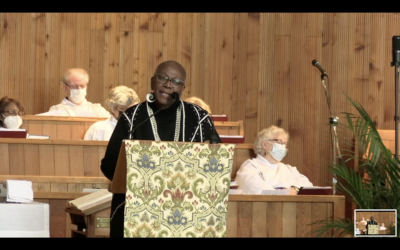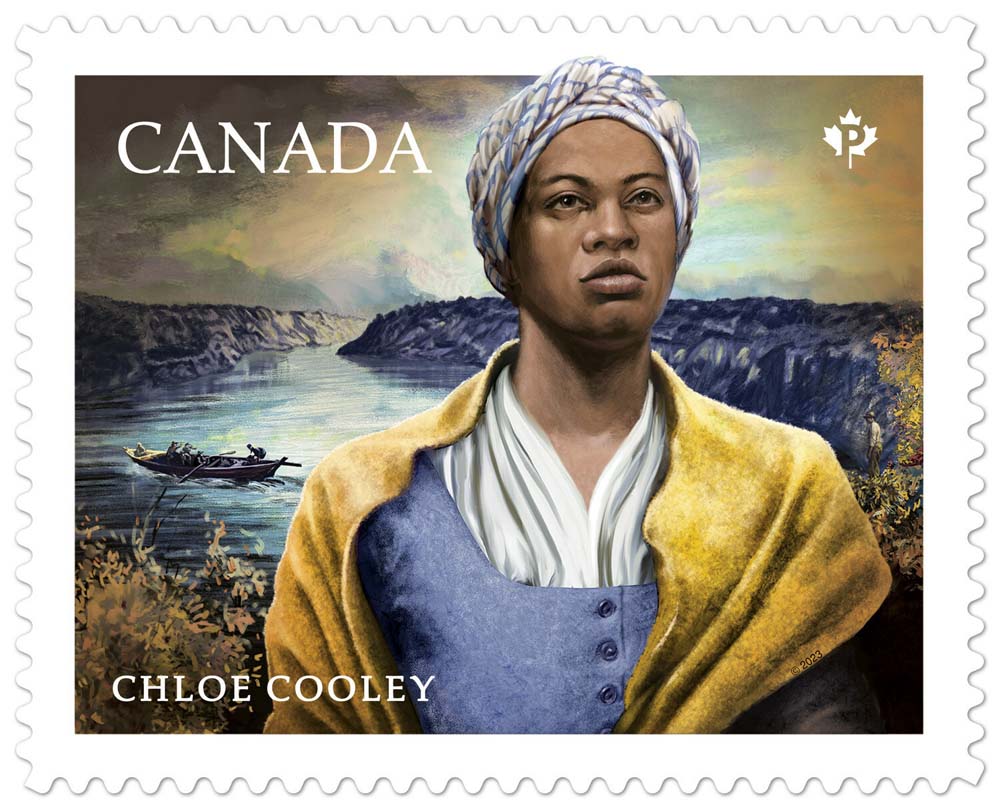Celebrations of Black History Month in the diocese began at St. Mark’s Anglican Church in Ottawa on Feb. 5 with the return of guest speaker Dr. Joy Mighty, professor emerita from Carleton University, who was a keynote speaker at diocesan celebrations in 2022. She delivered another rich and inspiring homily.
“Who are Blacks in Canada?” she asked. “Blacks are people of African ancestry who live in Canada. They include 44% who were born in Canada—the ones, like my nieces and nephews, who understandably get quite annoyed when people keep asking them ‘But where are you really from?’” she answered. “Blacks in Canada have 170 different birth places and over 300 ethnic or cultural origins.”
This year’s celebrations at St. Mark’s centre on the theme: Black in Canada: the narrative and the vision. “Given their different backgrounds, experiences and paths taken to get here,” she said, “there is not a single narrative about Blacks in Canada, but rather many narratives.”
Black History Month was established to honour the legacy of Black Canadians. “It is a way … of acknowledging the enormous contributions to culture, science, the arts, politics, and every other field of human endeavour that peoples of African descent have made to the advancement of humanity since the dawn of civilization,” Mighty said.
“It is about celebrating Black resilience, innovation and determination that have helped moved Canada towards a more inclusive and diverse society. We’re not quite there yet, but we’re getting there,” she added, optimistically.
It is also about looking at the hard truths of history — Black enslavement, colonization, and other forms of subjugation, as well as recognizing and celebrating “the resistance and advocacy that have freed us from such oppression,” she said.
Narratives must include the story of the over 4,000 Blacks enslaved in Canada, Mighty said. “Many people think Canada did not have slaves.” She noted that Canada Post has just released a commemorative stamp of Chloe Cooley, whose fierce resistance to being transported from Upper Canada (now Ontario) to be resold into slavery in New York added momentum to the gradual abolition of slavery in the region.”
She mentioned Viola Desmond, who fought her arrest and conviction for refusing to leave a whites only section of a theater all the way to the Nova Scotia Supreme Court, but was not granted a posthumous apology and pardon until 2010.
Narratives must also include the destruction of Africville, a community established in Halifax by former American slaves who had been promised freedom and land, Mighty said. Instead, they lived without amenities such sewage, access to clean water, and garbage disposal available to other citizens. Then in the 1960s, the city demolished Africville, displacing its residents in the name of urban renewal. In 2010, descendants finally received an official apology and some reparations.
Mighty also drew attention to the story of porters — “exclusively black men hired by Canadian railway companies to attend to every need of travellers aboard the luxurious pullman sleeping cars that traversed Canada from the late 1800s until the mid-1950s.” The porters endured terrible working conditions such as 21-hour shifts, sleeping on mattresses on the floor of the smoking car, and low wages, she said. “They were even denied the dignity of being called by their own names as each porter was called George after the inventor of the pullman sleeping car…. To improve their situation, the porters resisted, risking their employment and their lives, by secretly organizing. They established unions and fought for better wages and working conditions. Their struggle paved the way for equality of opportunity and fair employment practices for all Canadians,” Mighty said,
Then she turned her attention to the second part of the theme: Black in Canada: the vision. “As past and present narratives of Blacks in Canada have shown us, racism is a sin that continues to darken our world. Jesus invites us, as both the collective body of Christ and as individual believers, to be visible beacons of hope amid the darkness of racism, to a light that ultimately points others to God,” Mighty said. “This then is the vision of Blacks in Canada, to serve as the salt and light of the world, to be catalysts for change, as Mahatma Gandhi said, ‘You must be the change you wish to see in the world.’”

Dr. Joy Mighty delivered a rich and inspiring homily.


Week of Prayer for Christian Unity annual service to be celebrated at Saint Paul University on Jan. 22